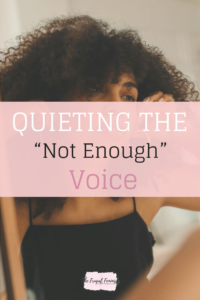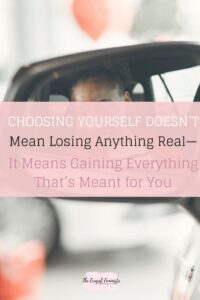From the Cradle
Over the course of a life-time, we forge an array of relationships and kinships through a combination of choice, circumstance, and/or fate. The primary relationship, the bond between parents and child, however, is clinically considered to be one of the most important and influential in our lives. This is because we enter it without choice or preparation, and at the most vulnerable and impressionable stages of our human development– infancy and childhood. As adults, we are pretty cognizant of how our childhood experiences with loved ones molded our sexual, racial, and spiritual identities. We may even be able to trace the foundation of our political leanings and political outlooks to certain experiences in our youth. But, what about our financial selves? How much do we think about the impact of our primary relationships on the development of our financial identities?
Baby See, Baby Do
During infancy, the principal role of parents is to create a world that is safe and predictable for a baby. They provide this by responding to an infant’s basic caretaking needs (i.e. feeding, changing, caressing). The role of parents changes, however, once the baby transitions into toddlerhood and early childhood. Once children begin to walk and talk, they not only looks to parents for care, but they also look to parents for direction. Specifically, they look to parents for social clues– how to be, how to think, and how to behave. With this new role as teacher, parents transmit their values, ideas, and understanding of the world through action, example, and explicit instruction. Children, in turn, internalize and ultimately, assume much of their parents’ financial identities. As children venture through adolescence into adulthood, these centralized beliefs serve as behavioral reference points, which are either reinforced or rejected as adults categorize the sense of reward and/or punishment associated with their outcomes.
She Gets It From Her Mama
I serve as the quintessential example of this phenomenon. I make a decent living, hold a number of degrees, and live (way) below my means. Nonetheless, I have a fear of being as broke a joke. Also, I find it difficult to lend out money to family members and to accept money from strangers and loved ones. Moreover, I just do not feel good if I do not have multiple streams of income. Furthermore, I shop wholesale and when I can, I buy it used. Finally, I love using my creativity to make money.
My financial identity as both a disciplined, diligent saver and creative income-generator in my adulthood largely come from both the mistakes and genius that my mother exhibited in handling money as I was coming up. Here are some the things that happened and these are some of the things that I learned:
Many members of our family borrowed money from my mother and never repaid her. As a consequence, she often complained about not having money for what she needed.
- Lesson Learned #1: Money is scarce,(since everyone was asking for it and could not repay it), so hold on to it.
- Lesson Learned #2: Giving money to family can make you sad, so try to avoid it.
- Lesson Learned #3: People do not like to repay money, so don’t expect it back.
We spent Sunday afternoons shopping in wholesale districts and outlets.
- Lesson Learned #1: Bargain-hunting is fun and recreational.
- Lesson Learned#2: You can always pay less for an item.
- Lesson Learned #3:Retail stores price gouge and should be avoided.
I was cashier in my mother’s home-based boutique and worked in my uncle’s grocery stores.
- Lesson Learned #1: Have an entrepreneurial spirit.
- Lesson Learned #2: Learn the consumer interests of those around you and cater to them.
- Lesson Learned #3:Pay your bills on time and keep a great history of credit, so you can expand your business easily.
Go Back to Your Financial Roots
Understanding your financial identity is the cornerstone to financial recovery and financial self-awareness. Try the following three-part exercise to get you back in touch with your financial self:
Step#1: Uncover Your Beliefs about Money. Ask yourself the questions that reveal your unique perspective on money: Is money the root of all evil? Do I shop to feel happy and complete? Are expensive gifts a sign a love? What does money represent? Freedom? Power? Status? Security? Am I generous with money to friends and family? Do I abhor the wealthy? Is financial discipline deprivation? or smart thinking? Should my partner take care of me financially? Is paying bills on time important? Do I think about saving for the future? or spend in the present? Do I hoard money for fear of being poor? Do I spend excessively now because I was deprived as a child? Do I lie about how much money I make to bolster my confidence? Is talking about money impolite and a sign of poor home-training?
Step#2: Make a Financial Family Tree: Our perspectives on life, especially money, are created over time and with the influence of those around us, not in a vacuum. Create a family tree that lists all of the lessons (explicitly or implicitly) learned from those closest to you during your childhood.
Step#3: Make a Choice: Knowing who you are and why are you that way are key to self-acceptance and/or change. The things that we learned as childhood should be reevaluated and modified if they are not working to our benefit. Through conscious planning, reflection, and the help of others, we have the power to restructure, rebuild, and redefine the influence of the past.










 Follow us here:
Follow us here: